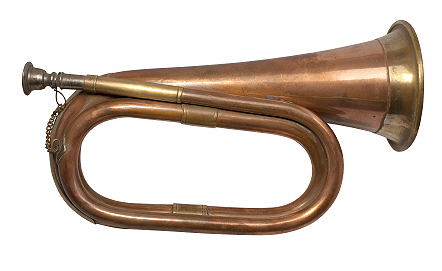Due to the July 4th Independence Day holiday, we are posting this week's Nailing Post on Wednesday. Have a great Fourth of July.
 This is the 150th anniversary of the Battle of
Gettysburg during the American Civil War. The battle that changed the course of
the war started as a small skirmish on July 1, 1863 between
the advanced infantry of the Army of Northern Virginia, who were looking to
commandeer supplies in this small Pennsylvania town, and Union Cavalry who
happened to be in Gettysburg. Both sides quickly assembled massive
reinforcements. After three days of fighting, 48,000 men had become casualties.
At one point on the third day of fighting, only 3 out of 10 Confederate troops
survived the battlefield to form a retreat.
This is the 150th anniversary of the Battle of
Gettysburg during the American Civil War. The battle that changed the course of
the war started as a small skirmish on July 1, 1863 between
the advanced infantry of the Army of Northern Virginia, who were looking to
commandeer supplies in this small Pennsylvania town, and Union Cavalry who
happened to be in Gettysburg. Both sides quickly assembled massive
reinforcements. After three days of fighting, 48,000 men had become casualties.
At one point on the third day of fighting, only 3 out of 10 Confederate troops
survived the battlefield to form a retreat.
The Battle of Gettysburg marked a turning point in the war.
Southern troops never invaded the north for the rest of the war. General Robert
E. Lee suffered a major defeat after a string of victories where he
outmaneuvered Union generals. His counterpart at Gettysburg, General George
Meade, had been in command of the Army of the Potomac for only three days
before the battle began. Meade set up defensive positions on the high ground
and held firm in Lee’s offensive, especially on July 2 and 3. But as the
remainder of Lee’s army began to retreat on July 4, Meade refused to pursue
them. He missed an opportunity. Lee retreated across Maryland and then into
southern territory in Virginia. The Potomac River was swollen due to heavy
rains. If Meade would have pursued them, the Confederate Army would have been
trapped up against the river. As it ended up, Meade was great on defense, not
so eager on offense. Some believe that if he would have pursued Lee’s army, the
war would have ended almost two years before it did.
Meade’s refusal to pursue Lee was seen as a strategic
mistake by many people, including the Commander in Chief, Abraham Lincoln. The
following spring, Lincoln gave Meade a new boss- Lt. General Ulysses S. Grant.
Grant was known to take the fight to his enemies instead of being on the
defensive. Under Grant’s leadership, this offensive style of war proved
effective in subduing the Southern forces. Within a little over a year of his
appointment, Lee surrendered to Grant at Appomattox Court House, Virginia.
Leadership makes a difference. You may not be fighting a
war, but the concept for business remains the same. Leadership decisions you
make can have huge consequences. For instance, many companies have taken a
defensive position towards growth during the past five years. The Great
Recession and the sluggish economy have had them doing business – and in
particular, pursuing new business through marketing - with caution. It is time
to switch strategies and go on the offensive. Why? Many business leaders took a
wait-it-out approach to the bad economy. A decade of prior business history
suggested that corrections in our economy happened every now and then. Ride out
the storm and bluer skies were just a few short months away. But it became
evident after several years of a down economy that this was more than a passing
storm. Business has changed. Business strategies have to change with them. That
means if you are a company that has had an inside sales force that has waited
for the old customers to reorder, you will have to change your strategy to be
more aggressive if you expect to survive. That begins with a strategic shift at
the top.
Where does marketing come into play? Marketing is the way we
communicate the direction leadership is heading. Think of it as the bugle call
to charge or retreat. If you find that you need to change directions, marketing
has to carry the message. A new marketing emphasis is needed to catch the
attention of your customers. When done correctly, it lets everyone know that
something new is happening. Without it, your sales staff won’t be armed for the
fight and your customers won’t respond.
Are you ready to charge into the marketplace? Does that
suggest a new direction for you? Make sure your marketing reflects your new
direction.
____________________________
July 3, 1863: Battle of Gettysburg ends, This Day in History, History.com